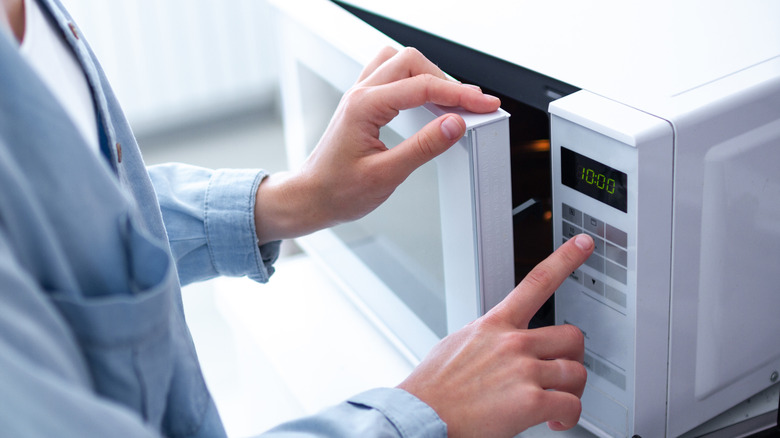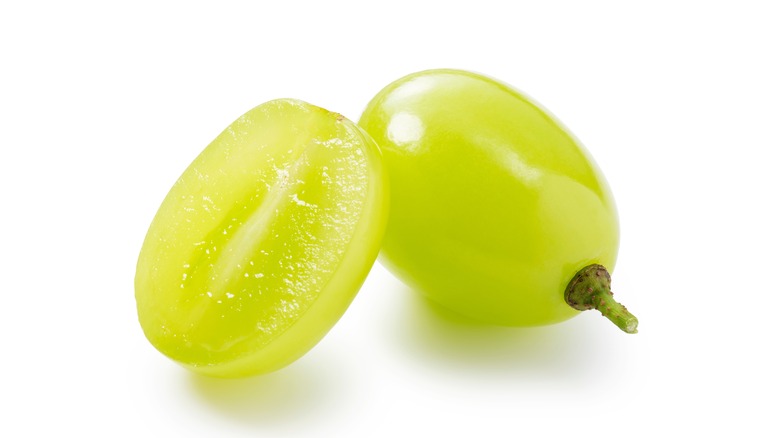You Should Never Put Grapes In The Microwave. Here's Why
It's a well known fact that putting metal in the microwave will cause sparks to fly, but did you know that microwaving grapes can have even more explosive results? Under the right circumstances, these littles fruits can trap so much energy in your microwave that they actually produce the same effect as lightning or the sun.
This phenomenon has been documented repeatedly on YouTube by cutting a grape almost completely in half so only a thin piece of skin held the two pieces of fruit together, but was later shown by research (summarized by Science) to also occur when two skinned grapes are set in a microwave within three millimeters of each other.
Microwave ovens work by producing short waves of radiation, shares the FDA, which vibrate the water molecules in food causing them to produce heat energy, which cooks them. So foods with higher water content cook faster than drier foods. Grapes, which are almost completely composed of water, according to Atlas Obscura, heat up very quickly, and (because they are so small) essentially cannot contain the amount of energy produced in the microwave oven. Running a microwave empty can be enough to damage the device, and microwaving one or two grapes will have basically have the same effect, only amplified because of their high water content in such a condensed amount of space.
Don't try this at home
Concordia University researcher Pablo Bianucci explained to Atlas Obscura that the microwaves inside the appliance "get trapped" inside the grape and will build up so much energy they begin to "hop" from one half of the fruit — or from one grape — to the other until a powerful electromagnetic field is formed between them.
As explained by Vox, this electromagnetic field can eventually become strong enough to strip electrons away from the atoms in the grape and the surrounding air, creating a super-ionized gas known as plasma, which flares up in small gouts of white hot light, similar to lightning.
While the effect is undeniably fascinating to watch, it is not advised for home "researchers" to attempt this experiment in their own kitchens, as there is a significant chance of damaging or destroying your microwave.
Bianucci noted that he and his research partners ruined 12 microwaves they had specially rigged to observe their experiments in the process of writing a paper on the subject, so unless you are planning on replacing your microwave oven in the near future, it is probably best to keep your grapes safely in the refrigerator.

